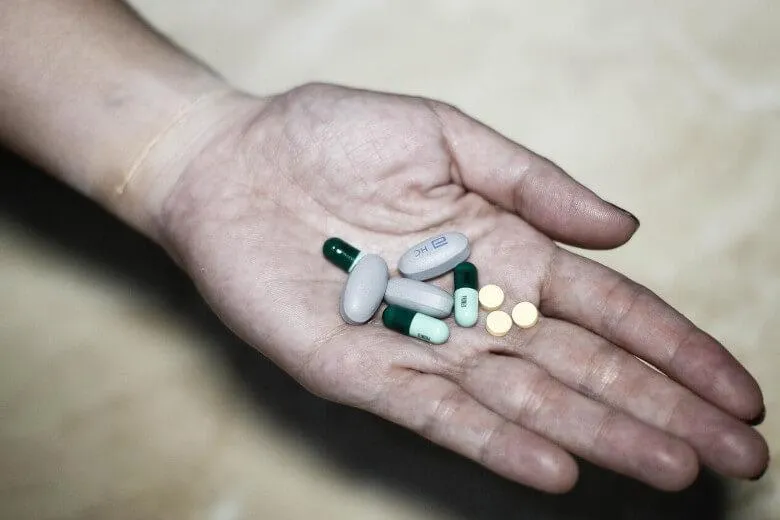
The Truth About Pain Management: Why Nothing Has Helped—Until Now
If you've been told that pain management means medications, injections, or just “learning to live with it,” you're not alone. I heard this from countless patients over the years—and I lived it myself for decades.
But what if managing your pain wasn’t the end goal?
What if the real solution was understanding—and correcting—the cause?
After more than 50 years as a physician (and more than 30 as a patient in pain myself), I discovered that most chronic pain doesn’t need to be managed. It needs to be solved—and gently supported in healing.
Why Traditional Pain Management Often Falls Short
The conventional model of pain management focuses on suppressing symptoms rather than solving problems. Patients are offered:
Painkillers to numb the sensation
Anti-inflammatory medication to reduce swelling
Nerve blockers or opioids for severe cases
Physical therapy, injections, or surgery when all else fails
But time after time, I saw patients who had tried all of those—and were still in pain.
I had been one of them.
My Own Journey with Chronic Pain
My back pain began during my first pregnancy, and it stayed with me for the next 37 years. It impacted everything—how I moved, how I slept, even how I cared for my child.
I tried all the conventional approaches. Some gave temporary relief. None solved the problem.
Eventually, my clinical work and personal experience led me to the sacroiliac (SI) joints—the often-overlooked junction between the spine and pelvis. What I found was startling: pelvic misalignment and overstretched ligaments were causing the pain. Not arthritis. Not disc issues. Not aging.
This changed the way I practiced medicine.
A Smarter Approach to Joint Pain Relief
Instead of managing pain, I began teaching my patients how to:
Realign the joints that were hurting
Support the area as it healed
Regenerate overstretched ligaments around displaced joints
And in many cases, pain that had lasted months—or even years—vanished.
My 3-Pillar Joint Pain Relief Method
1. Realignment
A gentle, two-minute lunge-based stretch can reposition the pelvic bones and relieve pressure on irritated nerves inside the overstretched ligaments surrounding the joints. I taught this method to patients all over the world—from hikers to cruise passengers—and the results were often immediate. Other joints can also be realigned with exercises, splints, or orthotics.
2. Support
Once aligned, the body needs help holding things in place. I recommend a Pelvic Support Belt worn low across the hips to prevent SI Joint reinjury during everyday movement, and a donut cushion to prevent the pelvic bones from spreading apart when you sit. There are also splints to stabilize the joints of the fingers, wrists, elbows, knees, ankles, and feet.
3. Regeneration
When ligaments are too loose, they need support from the inside out. That’s where prolotherapy comes in—a regenerative injection treatment that stimulates natural healing for joints, the ligaments that surround the joints, as well as the tendons that hold our muscles. I used it myself, and it helped restore long-term stability to my SI joints, my left knee, and the Achilles tendonitis of my left ankle.
What About Topical Relief?
Real healing takes time, but topical treatments can make daily life easier. That’s why I developed QR Cream—a fast-acting topical pain reliever designed to reduce inflammation and discomfort from sore muscles, joints, and nerve irritation. Many of my patients used it alongside the structural corrections for added comfort and mobility.
💡 You can learn more at http://qrcream.com
Why This Works When Nothing Else Does
Unlike conventional pain management, this approach goes deeper.
It doesn’t just numb the pain—it addresses what’s causing it.
I saw it help hundreds of people who had:
Been told there was “nothing wrong” on scans
Been managing pain for years with no clear diagnosis
Lost hope of ever feeling strong again
They found relief—not by masking the pain, but by understanding and correcting its source.
Is This Pain Management? Not Exactly.
It’s not about managing pain.
It’s about ending it—at least for the cases where a structural cause can be found and resolved.
If you’re in pain and nothing has worked…
If you’re tired of pills and procedures…
You deserve a new path.
Want to Learn More?
🎥 Register for my free webinar: Live Without Pain
If you've been told your pain is something you just have to live with, this class will help you understand what’s really going on—and explore proven paths to lasting relief.
Wishing you strength, rest, and real relief,
— Hélène Bertrand, MD (retired)
CLICK HERE TO RECEIVE LOW BACK PAIN RELIEF in 2 MINUTES!
Disclaimer: This content is for informational and educational purposes only and does not substitute professional medical advice, diagnosis, or treatment. Always consult your healthcare provider before starting any new treatment or making changes to your health regimen. Although Dr. Bertrand is a retired medical doctor, she is not practicing medicine or providing medical care through this website.
